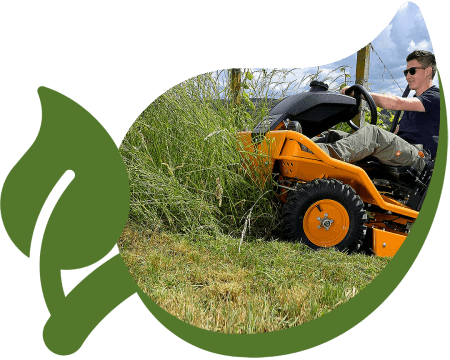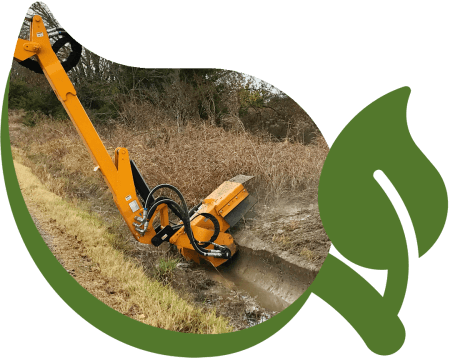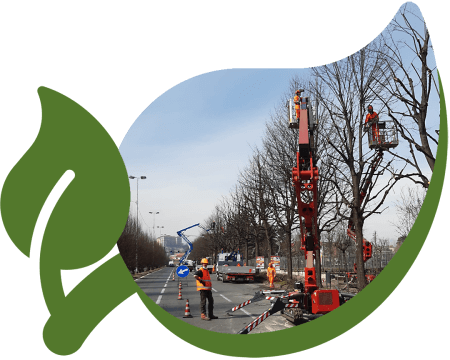agridea: your trusted partner
for year-round green care
A lush, well-maintained garden not only provides aesthetic beauty but also offers numerous environmental and health benefits. To keep your green space in optimal condition, regular maintenance is essential, encompassing various specific activities based on the season.
Why is regular maintenance important?
Neglecting garden care can lead to several negative consequences:
- Proliferation of weeds and pests: weeds compete with your plants for water and nutrients, while pests can damage or even kill them.
- Diseases: plants weakened by a lack of care are more susceptible to diseases.
- Poor growth and flowering: if your plants don’t receive proper care, they won’t grow and flower to their full potential.
- Aesthetic decline: a neglected garden is not only unpleasant to look at but can also significantly lower your property value.

What are the main activities of regular maintenance?
Garden maintenance activities vary depending on the season, but generally include:

- Pruning: pruning is essential for keeping plants healthy and shaped. It removes dead or damaged branches, promotes new growth, and controls the plant’s shape.
- Fertilization: fertilization provides plants with the nutrients they need to grow and bloom. It’s important to use fertilizers suitable for your soil type and plant species.
- Irrigation: irrigation is crucial for keeping plants hydrated, especially during dry periods. It’s important to water regularly and deeply, avoiding wetting the leaves.
- Weed control: weeds are a major threat to your garden. It’s important to remove them regularly before they can compete with your plants for water and nutrients.
- Disease and pest protection: it’s important to monitor your garden regularly to identify and promptly address any disease or pest problems that can spread rapidly.
- Lawn maintenance: lawns require specific care, including regular mowing, fertilization, and irrigation.
- Garden cleaning: it’s important to regularly remove dead leaves, debris, and waste to keep your garden clean and tidy.
Tips for effective maintenance:
- Plan activities in advance: it’s important to plan all maintenance activities with agridea based on the season and your garden’s specific needs.
- Use suitable tools and products: agridea only uses high-quality tools and products to ensure the best results.
- Consult an expert: if you’re unsure how to care for your garden, you can always consult agridea’s experienced agronomists and gardeners.

Year-round garden maintenance calendar: what agridea can do, month by month
January:
- Pruning of dormant trees and shrubs
- Phytopathological control for disease and pest prevention
- Mulching the soil to protect roots from the cold
- Removal of dead leaves and debris
- Inspection of irrigation systems
February:
- Fertilization of the soil with organic or mineral fertilizers
- Sowing of new varieties of flowers and vegetables
- Pest control treatments if necessary
- Cleaning of paths and walkways
- Pruning of hedges
March:
- Planting of new plants
- Regular irrigation, especially in case of drought
- Monitoring of flowering
- Weed control
- Mowing of the lawn
April:
- Continuation of fertilization
- Specific crop care for each type of plant
- Protection of delicate plants from late frosts
- Harvesting of the first fruits and vegetables
- Haymaking of the lawn
May:
- Repotting of potted plants
- Plant propagation by cuttings or division
- Control and removal of any pests
- Deep and constant irrigation
- Regular mowing of the lawn
June:
- Trimming of hedges to keep them compact
- Flowering pruning of some species
- Harvesting of fruits and vegetables
- Pest control treatments if necessary
- Irrigation in case of drought
July:
- Maintenance fertilization
- Control and removal of weeds
- Regular irrigation
- Mowing of the lawn
- Harvesting of fruits and vegetables
August:
- Specific crop care for flowering plants
- Harvesting of fruits and vegetables
- Irrigation in case of drought
- Inspection of irrigation systems
- Pruning of some tree species
September:
- Sowing of new varieties of flowers and vegetables
- Cleaning of flower beds
- Removal of dead leaves
- Pest control treatments if necessary
- Scarifying the lawn
October:
- Autumn fertilization
- Planting of bulbs and rhizomes
- Protection of delicate plants from the cold
- Pruning of trees and shrubs
- Harvesting of fruits and vegetables
November:
- General cleaning of the garden
- Removal of dead leaves and debris
- Mulching the soil
- Inspection of irrigation systems
- Pruning of trees and shrubs
December:
- Vegetative dormancy for many plant species
- Phytopathological control for disease and pest prevention
- Protection of delicate plants from the cold
- Cleaning of paths and walkways
- Maintenance of irrigation systems
With proper regular maintenance, your garden will always be beautiful and well-kept, offering a pleasant green space to enjoy in all seasons.
